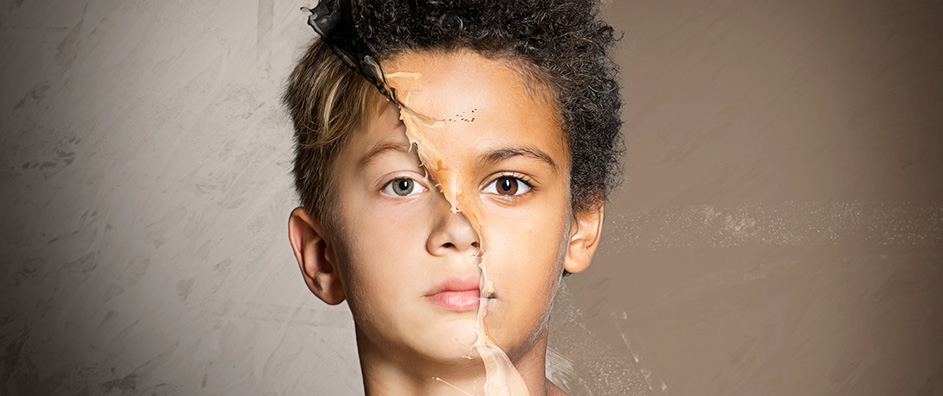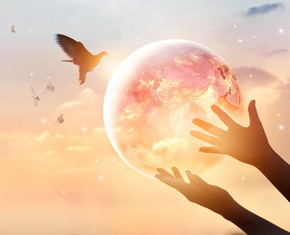The views expressed in our content reflect individual perspectives and do not represent the authoritative views of the Baha'i Faith.
Do you support the dominance of one race over another? Hardly anyone says they do—but racism doesn’t just refer to conscious thoughts and chosen behaviors.
When we talk about racism as a systemic condition of an entire society, we define it as something we are born into, and that permeates the core of our social and physical identity. Without our permission, it defines who we are, our place in the world, and the advantages and disadvantages we will face in life. When I wrote about this theme earlier (Racism is America’s Original Sin: But what does that Mean?), I drew on the Christian concept of original sin to highlight a kind of guilt that adheres to a person independently of their freely chosen actions.
In dealing with these concepts, it helps some people to think of society as a massive impersonal entity endowed with free will and a capacity for action: “It isn’t us who keep racism alive—society does it.”
What’s the problem with this way of thinking? It can too closely resemble belief in a kind of false god that lives among us, intent on keeping racist practices and concepts alive. It can obscure the processes by which a mass of uncoordinated individual behaviors can produce an orderly social pattern of systemic racism. In light of this problem, it’s worth pondering how the individuals who make up a society can perpetuate the basic problem, even though they may not be aware of it. In the past few years, more and more people have engaged in this kind of healthy reflection.
At this time, the United States and many other nations have undertaken far-reaching conversations about the power of race within society. Social media is awash with content that examines how the places we want to live, the pop culture we enjoy, the expectations we have of ourselves and of others, even how people make small talk can reinforce Whiteness as the dominant and preferred identity of American and European culture.
We’re learning that by-and-large, the behavior of the dominant racial group is the decisive factor in the perpetuation of systemic racism. This isn’t hard dogma that everyone should be forced into believing–but a growing number of people find it the most reasonable way to interpret the evidence around them. Typically, this idea encounters a great deal of resistance from white people when they first hear it.
In the United States, one of the great challenges of anti-racism work has been persuading white people that they are not just neutral bystanders in the struggle for racial equality. It’s difficult for many to understand the vast diversity of ways, some big, some small, that their actions may prop up the dominance of white people over other racial groups.
This sad condition is part of a long heritage of racism in my country. But I think there’s something else going on here—a connection between this reluctance to take personal responsibility for racism, and the erosion of spirituality in the United States over the past century. It isn’t just that Christian values, once such a dominant feature of American life, are anti-racist values, though that is also true. I say this because in the past Christian practice has nurtured a relationship to oneself that makes personal transformation more likely and more dynamic. And what’s true of Christianity, which has always had strong roots in the United States, is also true of other Faith traditions, including the Baha’i Faith.
Religion, whether in a Christian form, a Baha’i form, or any other form, places a challenging responsibility on each person to bring about a better condition in the world and in each of our souls. The work of ending systemic racism is no different. It requires each of us to continuously reflect on how our inner, unconscious racial attitudes shape us, and how we shape them. It demands that we recognize our connection to any harm taking place around us and acknowledge our part in it. It asks us to work diligently to rid our inner selves and our outer culture of that harm. Prayer can become an important part of that process, along with cultivating humility.
In that light, consider this Baha’i prayer and meditate on it with systemic racism in mind:
O Thou forgiving Lord! Thou art the shelter of all these Thy servants. Thou knowest the secrets and art aware of all things. We are all helpless, and Thou art the Mighty, the Omnipotent. We are all sinners, and Thou art the Forgiver of sins, the Merciful, the Compassionate. O Lord! Look not at our shortcomings. Deal with us according to Thy grace and bounty. Our shortcomings are many, but the ocean of Thy forgiveness is boundless. Our weakness is grievous, but the evidences of Thine aid and assistance are clear. Therefore, confirm and strengthen us. Enable us to do that which is worthy of Thy holy Threshold. Illumine our hearts, grant us discerning eyes and attentive ears. Resuscitate the dead and heal the sick. Bestow wealth upon the poor and give peace and security to the fearful. Accept us in Thy kingdom and illumine us with the light of guidance. Thou art the Powerful and the Omnipotent. Thou art the Generous. Thou art the Clement. Thou art the Kind. – Abdu’l-Baha, The Promulgation of Universal Peace, p. 176.
















Comments
Sign in or create an account
Continue with Googleor